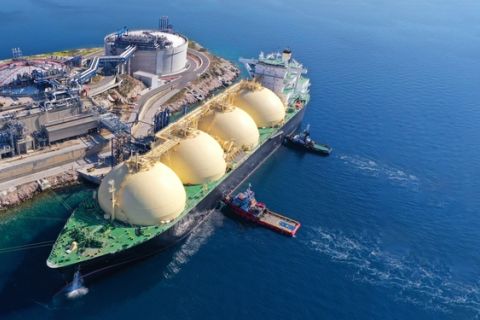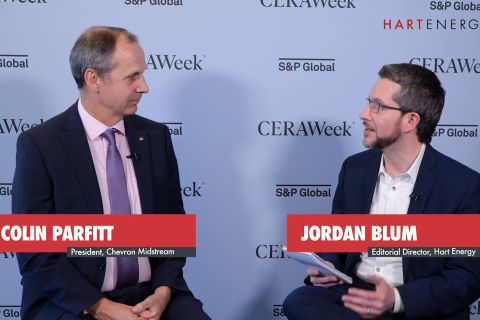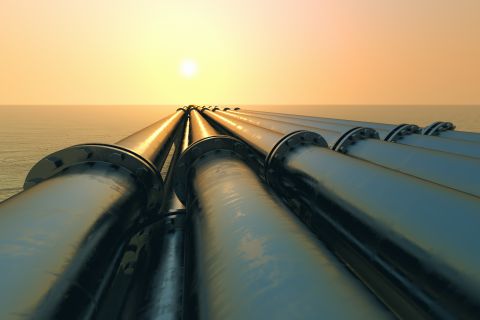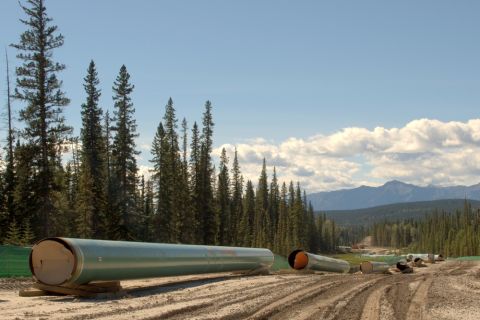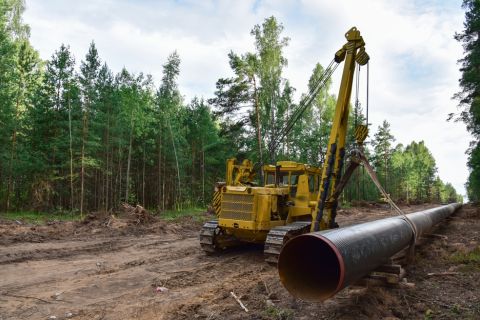Germany signed a memorandum of understanding (MoU) on Aug. 16 with the country's top gas importers to safeguard the supply of two LNG gas terminals it needs to reduce reliance on Russian energy.
Under the MoU with Uniper, RWE and EnBW's VNG, the two floating storage and regasification units (FSRU) in Wilhelmshaven and Brunsbuettel will be fully supplied from their expected operational start this winter until March 2024.
Economy Minister Robert Habeck said this was part of efforts "to make ourselves independent and less susceptible to blackmail from [Russian President Vladimir] Putin and to give Germany a robust and resilient energy infrastructure, or in this case, gas infrastructure."
Using the two FSRU, Germany will be able to receive up to 12.5 Bcm of LNG a year, or about 13% of the country's gas demand in 2021, according to numbers from research firm Enerdata.
The Nord Stream 1 (NS1) pipeline, which is majority-owned by Russia's Gazprom, usually supplies 55 Bcm a year to Europe but currently runs at just 20% of capacity.
Moscow blames reduced flows on delayed or faulty equipment. Berlin says these are pretexts to hit back at Europe in response to sanctions imposed over Russia's invasion of Ukraine.
"The erratic actions of the Russian president, the pretexts [on NS1]...I expect that we will again and again have to deal with new challenges," Habeck said.
He said German gas importers had been successful so far in procuring LNG cargoes from the global market for LNG.
Supply talks with large producer Qatar have hit snags, sources told Reuters in May.
Habeck said even though talks were ongoing but importers should be looking for the best deals on the market.
"Companies are well advised, also in the interests of consumers, to not take the most expensive offer and this is exactly what they did," he said.
Recommended Reading
New Fortress Starts Barcarena LNG Terminal Operations in Brazil
2024-03-01 - New Fortress’ facility consists of an offshore terminal and an FSRU that will supply LNG to several customers.
Exclusive: Chevron Balancing Low Carbon Intensity, Global Oil, Gas Needs
2024-03-28 - Colin Parfitt, president of midstream at Chevron, discusses how the company continues to grow its traditional oil and gas business while focusing on growing its new energies production, in this Hart Energy Exclusive interview.
Midstream Builds in a Bearish Market
2024-03-11 - Midstream companies are sticking to long term plans for an expanded customer base, despite low gas prices, high storage levels and an uncertain political LNG future.
Imperial Expects TMX to Tighten Differentials, Raise Heavy Crude Prices
2024-02-06 - Imperial Oil expects the completion of the Trans Mountain Pipeline expansion to tighten WCS and WTI light and heavy oil differentials and boost its access to more lucrative markets in 2024.
Trans Mountain Pipeline Announces Delay for Technical Issues
2024-01-29 - The Canadian company says it is still working for a last listed in-service date by the end of 2Q 2024.

